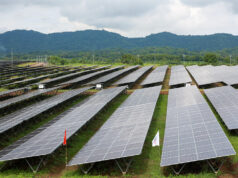Filipinos want next Congress to focus on healthcare, food security, infra

EIGHT out of 10 of Filipinos want their incumbent and newly elected officials to focus on policies that would deliver better healthcare, food security, and infrastructure development, according to a Social Weather Stations (SWS) survey on Thursday.
The survey, commissioned by Stratbase ADR Institute, found that 84% of Filipinos look for better healthcare access and services, while 81% call for better food security and agricultural development.
The survey added that 80% of surveyed Filipinos want leaders to address the development of infrastructure, followed by climate resilience and protection of natural resources (70%), national security and defense in the West Philippine Sea (76%), and the management of inflation (62%).
“People are demanding that they want honest and effective leadership. There is growing awareness that progress in sectors like healthcare and infrastructure is not possible without good governance,” Stratbase President Victor Andres C. Manhit said in a statement.
SWS added that Filipinos expect the incoming Congress to prioritize social programs that directly address the daily needs of Filipinos.
“Filipinos expect both Houses of Congress to direct public resources towards solutions that improve lives, which can be felt through quality jobs, just compensation, improved infrastructure, enhanced health facilities, accessible education, and stable and affordable food supply,” Mr. Mahnhit added.
“These are not new calls, but what is different now is the louder clamor from the public for better governance,” he said.
LOWER COSTS, INCREASE WAGES
Measures that would lower the cost of basic goods, increase wages, and address poverty also topped the list of what Filipinos want the next Congress to prioritize, as struggles due to steep prices and stagnating salaries continue, a separate survey revealed.
In an April survey, polling firm WR Numero Research found that 38% of Filipinos said they want lawmakers to push for measures that could lower the costs of goods, while 36% said they should prioritize raising languishing wage rates (36%) in the 20th Congress. A record half of the population considered themselves poor, according to an SWS poll.
Policymakers should also look at combating poverty and fighting criminality, as around 36% of Filipinos want them to prioritize poverty alleviation with 29% seeking a tougher stance against illegal drugs.
“Lowering the cost of basic goods and raising workers’ wages are the top priorities that Filipinos want newly elected and returning members of Congress to address,” the pollster said in a statement on Thursday.
The issues that topped the WR Numero Research are “long-standing ‘food on the table issues’” that Filipinos expect the government to resolve, said Hansley A. Juliano, who teaches political science at the Ateneo de Manila University.
“These are the basics of competent governance and providing quality of life,” he said in a Facebook Messenger chat, adding that the results of the survey showed the failure of past administrations in pushing for “fundamental” policy shifts in resolving them.
WR Numero said that 25% of Filipinos want lawmakers to create more jobs, while 23% called for stronger measures against corruption. The survey also showed that 18% desire solutions to the country’s education crisis.
About 8% of Filipinos said they want lawmakers to resist China in the South China Sea dispute, while only 7% showed support for efforts to strengthen the country’s military and coast guard.
The low concern for issues affecting the country’s sovereignty is likely due to Filipinos not recognizing the importance of security policies in safeguarding the nation, said Mr. Juliano.
Around 7% of Filipinos said lawmakers should prioritize the impeachment trial of Vice-President Sara Duterte-Carpio and to promote sex education in the school curriculum, the survey revealed.
Roughly 4% of Filipinos want policymakers to regulate political dynasties and legalize divorce, with 3% pushing for same-sex marriage. — Adrian H. Halili and Kenneth Christiane L. Basilio



